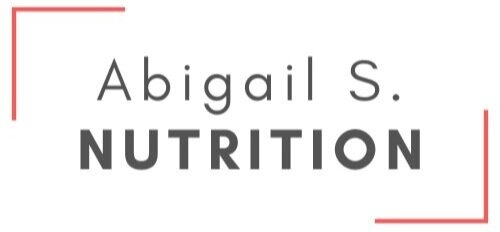5 ways to spot a diet
The anti-diet message is getting louder and I couldn’t be more pleased that more and more people will hear that they don’t have to lose weight to be happy. Things like Intuitive Eating are getting more air time in the press, and more and more bloggers are jumping on to promote this on their channels. Intuitive Eating is an intervention, not a diet, that aims to breakdown the rules and regulations around food and break up the relationship with diet culture.
When is non-diet nutrition really a diet in disguise?
The problem comes when people dilute or change the message, either through misunderstanding, or manipulation for commercial gains (oh hiiiii weight watchers and ‘intuitive eating’!).
You might notice that maybe they aren’t a Registered Nutritionist or Dietician. Maybe they are a doctor - but of what? Perhaps they recently started talking about non-diet nutrition, but aren’t digging into the background and doing the work to understand the inequalities surrounding dieting. And hey, it’s completely ok not to know everything, but if they are positioning themselves as an expert, and saying ‘do this’ & ‘eat that’, then maybe just get curious about their motivation.
I’ve put together a list of a few things you can check to see if the non-diet message is really a diet in disguise? There are a few quick ways you can tell if the non-diet message is truly non-diet, or if diet culture is sneaking back in with subtle weight-loss messaging.
5 ways to spot a diet:
1. Are there any rules around types of food?
If it has to be whole, unprocessed or clean – it’s a diet. If anything is banned, it’s a diet. If there are cheat foods, it’s a diet. If it has points, guess what - it’s a diet!
2. Are there any rules around amounts of food?
Look out for things like some foods only being allowed in certain portion sizes, for example nuts. Or perhaps some foods are only allowed on certain days. If any foods or meals you really enjoy are not allowed or discouraged, then the chances are it’s a diet.
3. Is there discreet body monitoring for example how clothes fit?
Any focus on linking food and appearance suggests that there is diet culture in the mix. Be wary of anyone who urges you to ditch the scales in favour of another way to measure as it may develop a hyperfocus on body composition or weight loss.
4. Is it being sold using a thin bodied person as a goal?
This is a tricky one, but if the person who is selling you the concept uses personal anecdotes of ‘success’ or centres their thin body in an aspirational way, then they are probably marketing a diet. The implication of ‘do this and look like me’ is rife in fitspo and inspo on instagram, and it is super sneaky!
5. Are there ‘intuitive’ guidelines around macronutrients like protein carbs and fats?
Eating intuitively to a set of macros isn’t the same as Intuitive Eating (that might sounds like pedantic semantics but it’s true).
One last thing to watch out for – if your health care provider also offers a weight loss, or weight management service they might not be able to fully support you in your move away from dieting. Continuing to offer dieting to clients as a sustainable way to lose weight, alongside a health at every size message shows a real conflict in understanding of the literature on weight loss.
For more information on Intuitive Eating, non-diet and a host of other topics either click the links or come find me on instagram

